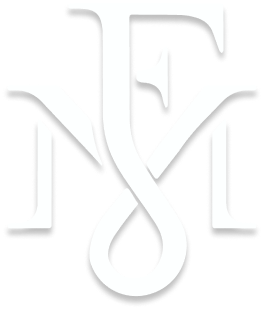Safeguarding the Rights and Interests of Investors in Russia’s Securities Market

In an effort to encourage transparency, trust, and accountability in the Russian securities market, Federal Law No. 46-FZ of 1999 was enacted to protect the rights and legitimate interests of investors both individuals and legal entities investing in emission securities. This law provides a legal framework that ensures professional behavior among market participants, offers recourse for investor losses due to malpractice, and promotes informed and fair investment practices.
Purpose of this federal law
- Protection of Investors: To ensure the state and public mechanisms actively protect investors’ rights and interests in the securities market.
- Compensation Framework: To establish a legal basis for compensation in cases where investors suffer losses due to unlawful or negligent actions of emitters or professional participants.
Who is Covered?
The law primarily applies to professional participants in the securities market (such as brokers, dealers, asset managers), and non-professional investors. However, it does not extend to activities involving bank deposits, insurance policies, or certain government and municipal bonds.
Provisions and Restrictions
1. Investor Protections and Market Conduct
To uphold market integrity and prevent malpractice:
- Securities from emitters that fail to disclose mandatory information cannot be advertised or offered to the general public.
- Contractual terms that limit investor rights below those provided by law are deemed invalid.
- Violators, including professional participants, may face license suspension or revocation, and fines.
2. Rules for Emission and Circulation of Securities
- Only legally permissible securities can be publicly offered. Securities restricted to classified investors must not be marketed to the public.
- Non-commercial entities may issue bonds only if expressly permitted by law.
- Individuals signing a securities prospectus are legally liable, jointly and subsidiarily, for losses arising from misleading or false information.
3. Investor Access to Information
Transparency is a cornerstone of the law:
- Emitters must provide investors with all legally required information.
- Professional participants must, upon request, share:
- License and registration documents.
- Capital and operational details.
- Credit ratings and registration data for securities.
- Historical pricing data, especially when acting on behalf of investors.
Failing to provide accurate information could lead to contract annulment or other legal consequences. Investors are also encouraged to proactively request this data, or they bear the risk of uninformed decisions.
Oversight and Enforcement by the Bank of Russia
The Bank of Russia plays a pivotal role in enforcement and investor protection:
- It monitors and publishes license statuses, sanctions, and legal rulings.
- It can restrict or halt operations of professional participants for up to six months if violations occur.
- It has the authority to initiate court proceedings to protect investor interests or halt unlawful securities activities.
- The Bank may also participate in court cases to provide expert testimony and support for investor claims.
Public Hearings and Legislative Feedback
To promote continuous improvement of securities regulation:
- Public hearings can be organized by the Bank of Russia or enforcement bodies.
- Hearings may result in legislative recommendations, which, if they uncover violations, are forwarded for legal action.
- These are guided by formal rules and contribute to shaping investor-focused legislation.
Support and Compensation Mechanisms
Compensation Funds by Self-Regulating Organizations (SROs): SROs may establish compensation funds to reimburse investors harmed by their member firms’ misconduct.
Investor Associations and Legal Advocacy: Public associations formed by individual investors are empowered to:
- Represent investor interests in court.
- Monitor debt recovery processes.
- Create independent compensation funds.
- Collaborate in broader financial market unions.
Federal Compensation Fund: The law established a Federal Compensation Fund specifically for individual investors who cannot recover losses through the courts due to a lack of debtor assets. Key functions include:
- Paying compensation.
- Maintaining databases of eligible investors.
- Managing and overseeing sale of seized assets.
- Representing investor claims in legal proceedings.
The fund is supervised by a Trustee Council comprising government, regulatory, and investor association representatives. Its charter and annual activities are governed and published according to government standards.
Note: Investors holding securities intended solely for classified investors are excluded from compensation eligibility.
Conclusion
Federal Law No. 46-FZ of 1999 establishes a robust legal structure aimed at protecting investors in Russia’s securities market. Through strict regulation, mandatory transparency, legal accountability, and dedicated compensation mechanisms, the law seeks to bolster public confidence and ensure fairness in investment activities. It reinforces the responsibilities of market participants and enhances the role of the Bank of Russia as a regulator and protector of investor interests.
In doing so, it serves as a cornerstone in the continued development and stabilization of Russia’s financial markets.







